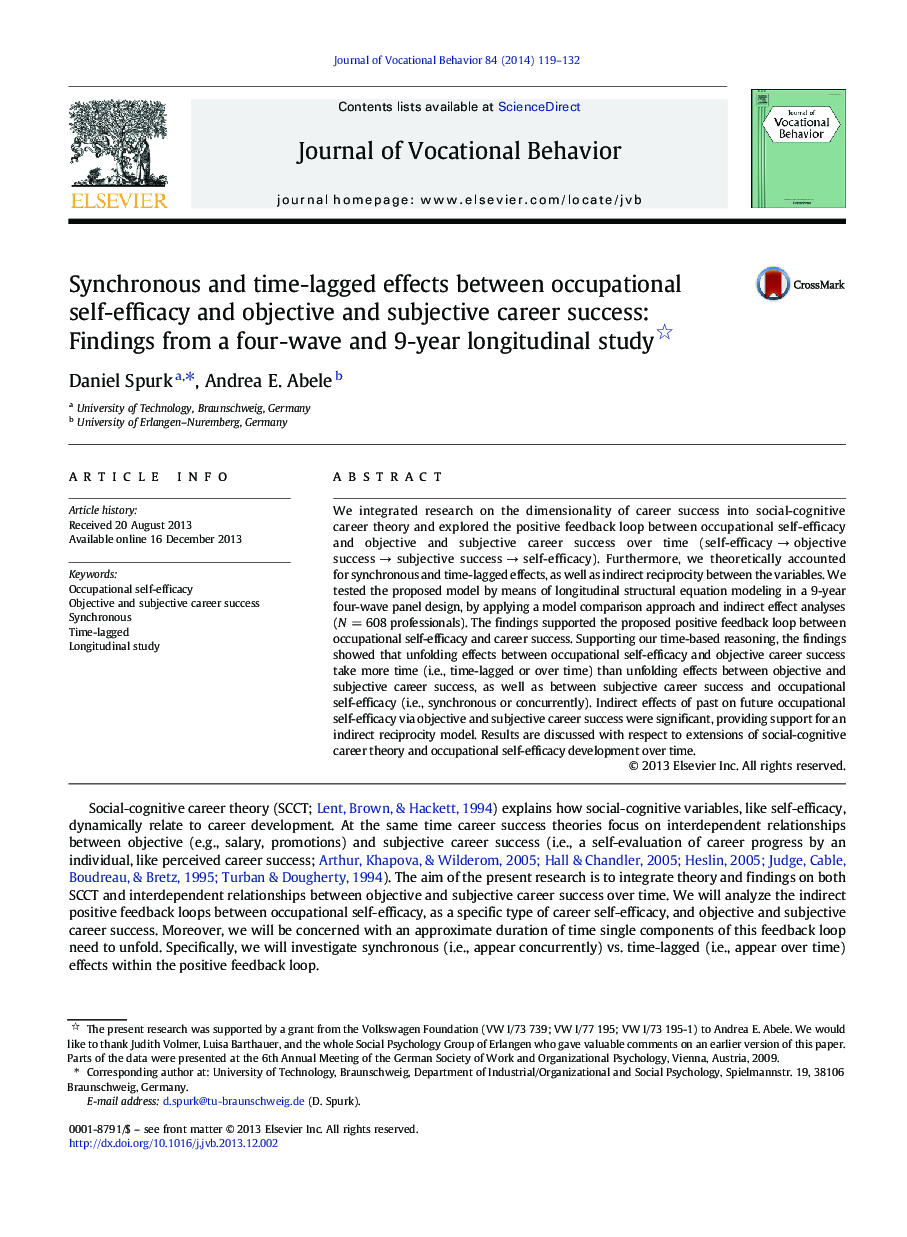| Article ID | Journal | Published Year | Pages | File Type |
|---|---|---|---|---|
| 886889 | Journal of Vocational Behavior | 2014 | 14 Pages |
•We analyzed indirect feedback loops between occupational self-efficacy and career success.•We analyzed synchronous and time-lagged effects in these feedback loops.•We used a four-wave and 9-year longitudinal design and a model comparison approach.•There were dynamic and indirect effects between self-efficacy and objective/subjective success.•The necessary time to unfold the effects varied within the feedback loop.
We integrated research on the dimensionality of career success into social-cognitive career theory and explored the positive feedback loop between occupational self-efficacy and objective and subjective career success over time (self-efficacy → objective success → subjective success → self-efficacy). Furthermore, we theoretically accounted for synchronous and time-lagged effects, as well as indirect reciprocity between the variables. We tested the proposed model by means of longitudinal structural equation modeling in a 9-year four-wave panel design, by applying a model comparison approach and indirect effect analyses (N = 608 professionals). The findings supported the proposed positive feedback loop between occupational self-efficacy and career success. Supporting our time-based reasoning, the findings showed that unfolding effects between occupational self-efficacy and objective career success take more time (i.e., time-lagged or over time) than unfolding effects between objective and subjective career success, as well as between subjective career success and occupational self-efficacy (i.e., synchronous or concurrently). Indirect effects of past on future occupational self-efficacy via objective and subjective career success were significant, providing support for an indirect reciprocity model. Results are discussed with respect to extensions of social-cognitive career theory and occupational self-efficacy development over time.
